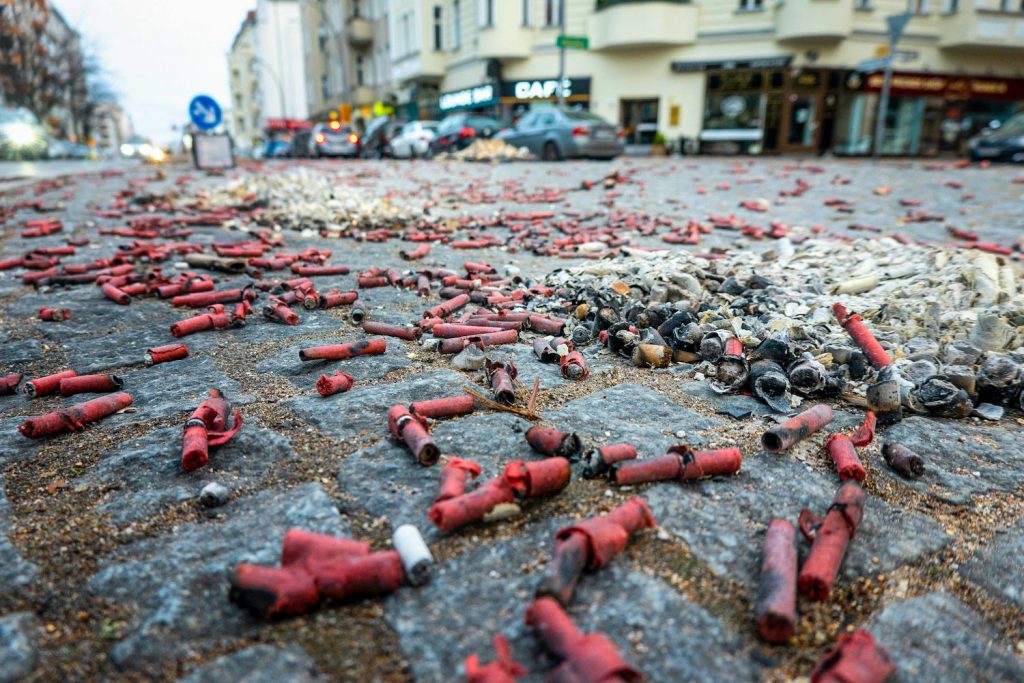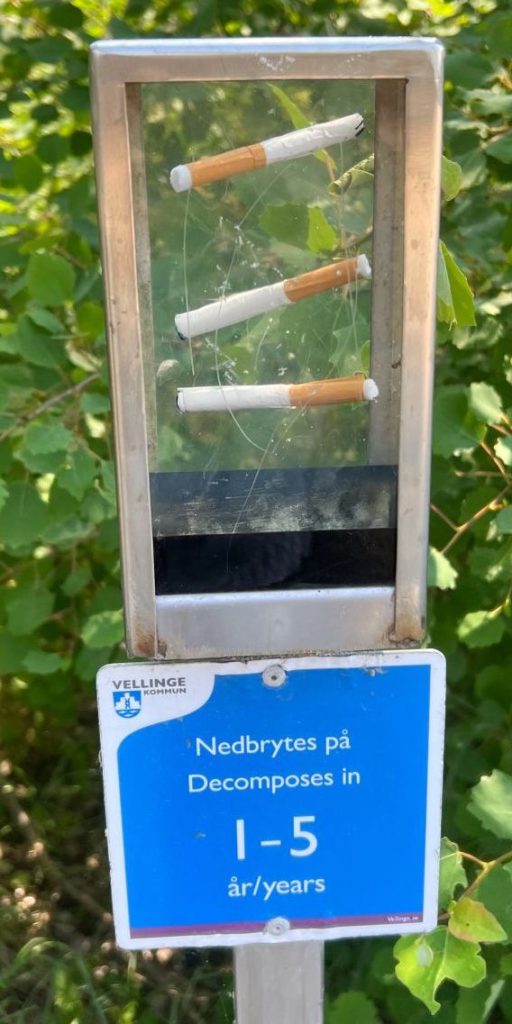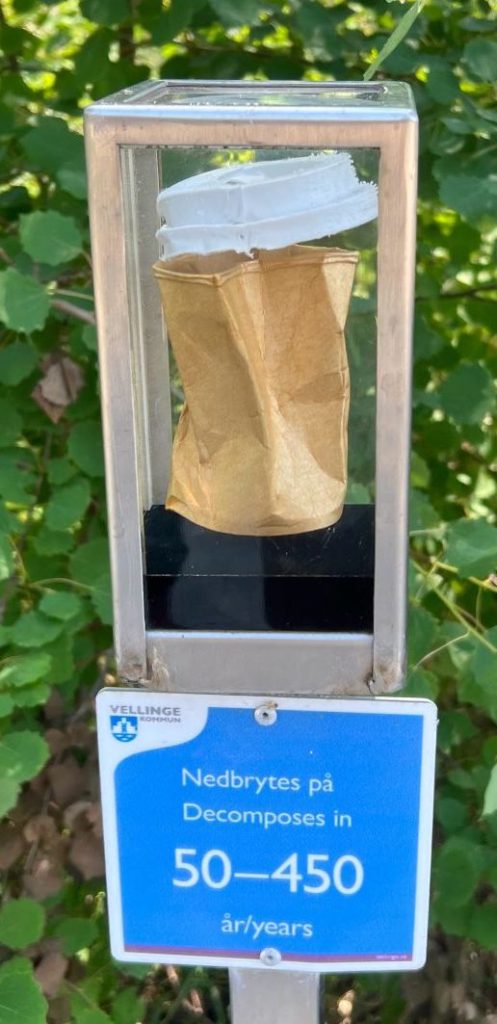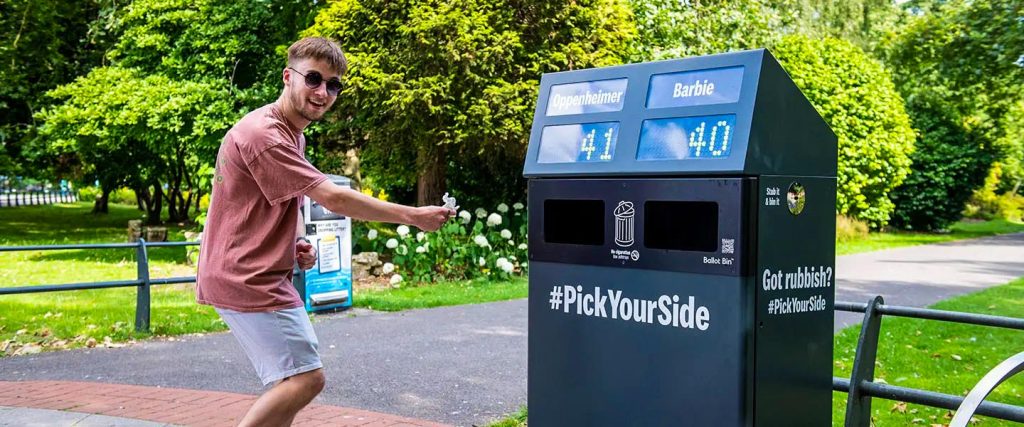Because of the population density, cities are a concentration of the best and worst of everyday human behaviour.
Nowhere is this more evident than at celebrations that infringe on urban parks.
With the warmer weather of summer, people strip themselves sartorially, and apparently of a sense of responsibility for the world around us. It seems that dangling fun in front of our faces makes us quickly forget our duties to Team Sustainability.
Allow this professional killjoy to explain.
C’Mon Feel the Noise
That symbol of celebration, fireworks, are officially banned for private use in Graz because they release too many harmful airborne particles. FUN!
Sadly for our furry and feathered friends, restrictions are not enforced. Split-second bangs can invoke stress in pets and terror in wild animals. Even diurnal birds are known to panic and have a bang of their own – fatally, straight into trees and lampposts.
Needless to say, fireworks are part of the chaotic and very urban phenomenon of recreational noise. In the EU alone, 22 million people suffer high annoyance from unwanted sound.
But (this once), that’s not the focus of my gripe. Walking through a local park on New Year’s day, it was actually the carpet of detritus underfoot that bothered me.
It didn’t come after an official display, either. Someone had used the public green space for their own entertainment – and left the remains. Which means there’s a chasm between who gets to enjoy such ‘festivities’ and who is expected to (pay to) clean up afterwards. If you’re a taxpayer, thanks for your service. Remember that the next time your bills go up faster than a rocket.

Twenty-Four Hour Parky People
Seeing the empty cartridges scattered around was reminiscent of a scene last July, in the very same park, as the crowd shuffled out of a day-long musical festival.
The mood was buoyant – apparently joy floats in alcohol. Also in danger of floating – in the river just metres away – was what they left behind: cans, bottles, cups, and wrappers.
Rubbish is a serious threat. Curious animals (and young children) can get their heads stuck, or become entangled, resulting in horrific injuries and death.
It’s a problem many of us share. A post on LinkedIn decryed the aftermath of an event in Accra. Indignant supportive responses in the comments suggest that this is out of character for Ghana – and I believe it. Austria, too, is generally a low-litter country. But it seems that our eco-friendly sensibilities disappear when revelry is involved. So it’s a relief to know that CityChangers are taking action.
No Smoke Without… Smokers
The city of Malmö has recognised the latent destructive force of litter. To educate and encourage visitors to take home their trash, they exhibit offending items with a simple message – decomposition times.
In a stark revelation, bottles, they claim, take a million years! Although, cigarettes only five.



This is interesting because many sources tell us that fag-ends don’t biodegrade at all, but rather disintegrate. And it can take a decade or more, according to Bin Your Butts Leuven, an education campaign group set up by Marilia Breite in response to seeing numerous extinguished ciggies poking out of a children’s sandpit.
Like Marilia, I was appalled at the need to step over countless cigarette butts nestled among the trash and sun-weary grass post-festival.
Exhaling noxious fumes among a crowd is rude enough, but dropping the leftovers to the floor verges on aggressive.
Filled with heavy metals, these sleeping killers leech toxins into the soil, potentially contaminating as many as 1,000 litres of water each. Cities and oceans are linked by the water cycle, so these poisons make their way into and then up the food chain – all the way back to us! Dropping dog-ends down the drain takes on a more sinister spin with that in mind, woudn’t you say?
Policing Parks
So no doubt, the way we express our fun directly impact on urban ecosystems.
If we’re going to rewild cities – with all the benefits that provides – these are serious if surprising concerns ripe for policy review.
But are the authorities the ones that really need to makes changes? City hall isn’t out there dropping litter as it stands watching a band.
Much of this relates to citizen behaviour. So how do we nudge it in the right direction without curbing enjoyment of public spaces? Because that’s a given – parks are a provision for everyone to appreciate. Although, it turns out, our experiences differ quite considerably.
Are Parks Equal Spaces?
The examples above – fireworks, festivals, smoking – have one thing in common: they impose unwanted smells, sounds, and physical restrictions on others.
In the case of festivals, public spaces are closed off to make room for portable toilets, temporary stalls, makeshift arenas, and the burly vehicles that heft it all to and from the site.
Not good news for citizens without gardens.
Green spaces help city kids develop stronger bones and, as the growing practice of social prescribing attests, help remedy poor health.
Urban parks sate our craving for connection with nature. The green lungs of a city are supposed to be peaceful, to provide much-needed respite; an oasis of calm to physically and mentally escape the humdrum and dirt of the daily grind.
As urban green spaces serve low-income groups most, these are the people who lose out most when access is denied.
That’s when ideas like the National Garden Scheme come into play: a network of people sharing private micro-green spaces – such as their backyards – for others to enjoy.

But surely this is the duty of local authorities, right?
It seems that Haringey Council in London has fielded this complaint enough times that they need to address it with a Q&A page. On it, they claim that events are part of the recreational provision citizens expect of them – and that it’s even a legal obligation.
Do we have any choice but to declare this a stalemate?
Well, we’re not out of ideas yet.
Parks for People
The natural value of National Parks are protected by law from too much human interference. But Australia is unique in distinguishing these from State Parks, which are also preserved but allow more recreational freedom, such as camping.
What if we ring-fenced urban parks in a similar way?
Some could remain as havens for wildlife and peaceful reflection, allocated according to a 15-minue ethos – everyone has the right to live within walking distance of such a (micro)park. (In fact, the World Health Organisation recommends five minutes!)
Other green spaces could be designated for more rigorous recreation – sports, dog-walking, skateboarding, etc. – and a few more reserved for events and performances. But only where they don’t infringe on the protected parks with residual noise.
Sounds tricky, but what better argument for revitalising grey- or brownfield land than to create blue-green pockets in built-up areas for the sake of celebration?

Celebratory Solutions
Changes this ‘revolutionary’ could be put to public consultation. Why not make that process part of the solution?
As a novel way to get people to dispose of their butts responsibly, Ballot Bins ask smokers to answer a 50/50 question – reducing cigarette litter by up to 73%! A similar idea sprang up around Graz a few years ago.
Quirky innovations like this make responsible action part of the fun we attend festivals for. It’s a much friendlier approach than introducing hard-line policies, which are irksome and face resistance.
It’s better for city departments to shift their focus and cooperate with event organisers on plans with uncoordinated waste management in mind.
If nothing else, events could provide more (temporary) refuse points in parks. Better still, we do it the Bristol way: this English city introduced bins that glow in the dark, talk when ‘fed’, and even offer on-the-spot prizes.* Cash for trash? Consider it binned!
Of course, a shift away from single use plastics would also help. But there’s plenty of trash that’s not plastic.
Any expense cities bypass by avoiding clean-up operations is money better spent elsewhere. Maybe even on more public parks – or celebrations.
Like a controlled and organised municipal firework display next NYE. Just as long as there’s an appropriate place to host it.
* Incidentally, if you’re a fan of on-the-spot prizes, you’ll want to meet the CityChangers team in Rotterdam at Urban Future this June.


